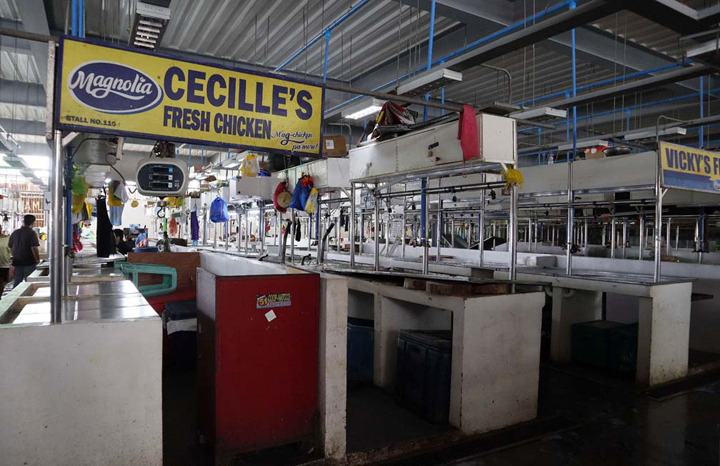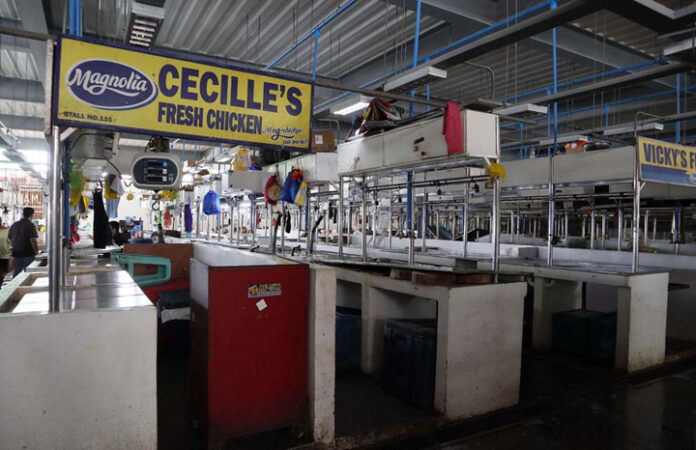
SENATORS on Monday resolved to ask the Department of Agriculture (DA) and the Bureau of Customs (BOC) to sit down and discuss their respective data on the costs of imported meat.
The senators questioned the basis of a pending recommendation to cut tariffs and increase the minimum access volume (MAV) for pork.
Currently, the MAV for pork is pegged at 54,210 metric tons (MT). The MAV Advisory Council has proposed to raise this to 400,000 MT under the MAV Plus scheme to plug the supply gap.
Pork imported within MAV and outside of MAV is slapped a tariff of 30 percent and 40 percent, respectively. The DA wants to lower the tariff for pork within MAV to 5 percent for the first six months and then raise it to 10 percent for six months. For out-MAV pork, the DA recommended to cut the tariff to 15 percent for the first 6 months then increase it to 20 percent thereafter.
At the same time, senators resolved to get a report reconciling data on the actual damage due to African swine fever (ASF) and measures that are being taken to mitigate the problem in 2021. See related story “DA chief bares P740-million swine ‘repopulation’ program.”
Warning that reducing tariff could unduly favor importers and hasten the collapse of the local hog industry, the Senate Committee on Agriculture approved a motion by Sen. Imee Marcos “to require that DA and BOC make a data analysis of the true cost of imported meat,” with the assumption that there is “no increase in MAV” and “no increase in tariffs.”
Committee Chairman Sen. Cynthia Villar said the two agencies should go back to the Senate and explain the troubling variances in the data they have, after Sen. Francis Pangilinan stressed the need for a “separate discussion between DA and BOC on price variances.”
Pangilinan demanded to know why Customs data of the cost of imported pork, as submitted to Villar’s committee, was $1.65 a kilo, but the DA projected a cost of $3 when it endorsed the increase in importations in a bid to stabilize local prices, which surged from a combination of the onslaught of ASF and the series of storms in the last quarter of 2020.
A testy exchange ensued between Pangilinan and Agriculture Secretary William D. Dar when the DA chief explained that the data attributed to DA were the result of simulations, even as Pangilinan insisted that when the government quotes its buying price at a high of $3, it “sends signals to the market” which in turn will jack up its prices. The senator had previously recalled the lesson from past years, when successive Philippine moves to import rice jacked up the global prices to historic highs.
Dar told Pangilinan, “I don’t understand your logic,” and insisted they were not signaling the market.
Pangilinan said he simply wanted an explanation of why DA projected the prices of imports at $3 when “$1.65 was declared [by importers] to BOC.”
Told by an assistant secretary that the $1.65 was the actual cost declared to BOC in January 2020 and prices have since risen to a high of $2.65, Pangilinan then demanded to know, “then why did you quote $3 instead of $2.65? Why are you increasing the value of imports” and asserted that this was tantamount to “favoring importers.”
DA’s head of the Policy Research Service Noel Padre explained to the Senate panel that “we had a range” of values in the simulation, inputting both the actual 2020 values and the new rates. “We included the BOC data,” and their range came up to between $218 and $298.
Pangilinan, meanwhile, wondered aloud if the values declared by importers to BOC were understated to pay lower taxes.
This, Villar said, underscores the need for the DA and BOC to sit down and reconcile their data. She suggested that DA ask the Philippine Institute for Development Studies (PIDS) to help analyze the data to understand the variances and accordingly make the correct policy moves.
Aid, not tariff cuts
Also at the joint Senate hearing, businessman and consumer advocate Ernesto Ordoñez pressed policymakers to withdraw the recommendation to slash tariffs on imported meat, and to instead use the funds representing foregone revenue to substantial assistance for local hog raisers devastated by ASF.
Ordoñez cited estimates showing that, assuming tariff cuts, the government would give up P11.5 billion. Local producers are asking for assistance amounting to P8 billion, which is much smaller than the revenue loss from tariffs.
The former Department of Trade and Industry undersecretary wondered aloud why government would prioritize favoring importers with tariff cuts, over the local producers.
“You don’t have to give it (tariff reduction); please look at the data again,” Ordonez asked policy makers, adding that in his engagements with importer groups, he knew that importers enjoy “a 10-percent ROI per month” even without tariff reductions, and wondered aloud, “you wanna give these people extra money?”
Ordoñez added: “you want them to import? They’ll import; no need for you to reduce tariffs.”

